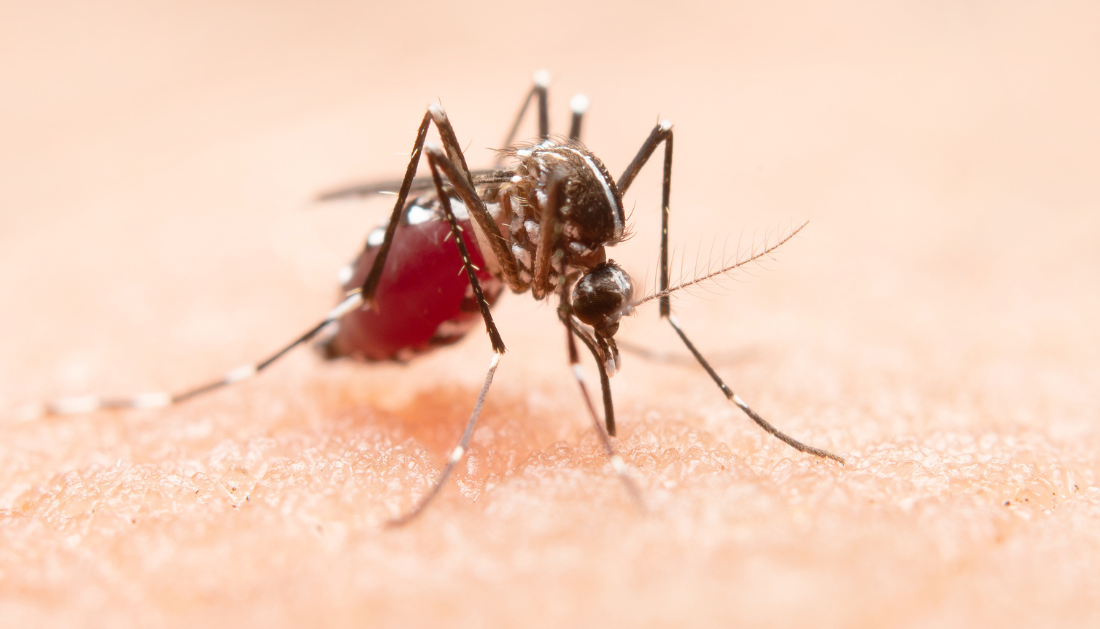

The results of a statewide study headed by Nanyang Technological University, Singapore (NTU Singapore) show that those who recovered from dengue are more likely to experience long-term health difficulties approximately a year later than people who contracted COVID-19.
In particular, compared to people who contracted COVID-19 and recovered, dengue patients had a 55% increased risk of cardiac problems, including irregular heartbeats, heart disease, and blood clots.
Drawing from test results and medical claim records of 1,248,326 COVID-19 (Delta and Omicron variant) infections and 11,707 dengue-affected Singaporeans between July 2021 and October 2022, the study searched for newly emerging immune, neurological, and cardiovascular issues that manifested 31–300 days following the infection. The study team stated that a special opportunity for comparison was presented by the co-circulation of COVID-19 and dengue during the study period.
Published in July 2024 in the Journal of Travel Medicine, the study is the first to compare the post-recovery risk of COVID-19 and dengue patients as well as the long-term risk of different health issues following this deadly virus.
Researchers from the National Environment Agency, Singapore General Hospital, Ministry of Health, Lee Kong Chian School of Medicine (LKC Medicine), and National Centre for Infectious Diseases, Singapore conducted the study.
Lead author of the study, Assistant Professor Lim Jue Tao, Infectious Disease Modelling at LKCMedicine, said, “We were motivated to conduct the study due to the increasing geographic range of dengue due to climate change. Dengue is one of the most common vector-borne diseases globally, and long-term health issues resulting from dengue can substantially increase the healthcare burdens of the infected person and the country.”
“We also decided to compare the results against those who recovered from COVID-19 as our previous work had suggested increased risk of similar long-term health complications. Overall, our study underscores the need for people to guard against dengue in their environment and can be a resource to support public health planning.” Lim Jue Tao, Assistant Professor, Infectious Disease Modelling, LKCMedicine
Compared to those who recovered from COVID-19, those who recovered from dengue had a 55% increased risk of cardiac problems.
After statistically analyzing their data, the researchers found that dengue patients had a higher chance of long-term health complications than COVID-19 patients did. Specifically, patients with this deadly virus had a 55% higher long-term risk of any heart complications, a 213 percent higher risk of cognitive or memory disorders, and a 198% higher risk of movement disorders.
Since prior research had already indicated that people who recovered from COVID-19 had an increased risk of the same illnesses, the risk of complications in dengue patients was compared to that of COVID-19 patients. Thus, comparing the health problems that both patient groups had after recovering provides special insights into the necessity of post-acute patient treatment and healthcare planning.
The percentage increase in the likelihood of experiencing a specific cardiac or neurological problem in the 300 days after a dengue diagnosis as opposed to a COVID-19 diagnosis is known as risk.
According to the study, patients who recovered from COVID-19 (6494 of 1,206,208 patients, or 0.5 percent) had a 50% lower risk of developing new long-term heart complications, such as dysrhythmia, ischemic heart disease, and thrombotic disorders, than patients who contracted dengue (101 of 11,166 patients, or 0.9 percent).
In addition, individuals with dengue had a 213 percent greater chance of cognitive and memory impairments than patients with COVID-19 (39 of 11,632, or 0.3% in the dengue group versus 1749 of 1,239,104, or 0.1% in the COVID-19 group).
Furthermore, compared to COVID-19 patients who recovered, dengue patients had a 198% higher chance of developing new extrapyramidal (movement) problems (25 of 11,610, or 0.2 percent, in the dengue group against 1270 of 1,238,195, or 0.1 percent, in the COVID-19 group).
Commenting as an independent expert, Professor Kwok Kin-on, infectious diseases epidemiologist at The Jockey Club School of Public Health and Primary Care, Chinese University of Hong Kong, said, “This study is crucial as it provides the first comprehensive comparison of post-recovery health issues between dengue and COVID-19 patients, offering valuable insights for healthcare planning and patient management. Additionally, the findings underscore the need for increased vigilance and targeted interventions for those recovering from dengue to mitigate long-term health impacts.”
The study has limitations, as the researchers pointed out. These include tracking only adults who are 18 years of age or older, which means that the study’s conclusions cannot be applied to populations of children. Additionally, factors that can affect risk estimations, such as genetic, behavioral, or environmental susceptibility to COVID-19 and dengue, were not taken into account.
In further studies, the group of researchers will assess the financial burden associated with various dengue serotypes (variants) in relation to the risk of long-term health consequences.
Source Link: Nanyang Technological University
more recommended stories
 Red Meat Consumption Linked to Higher Diabetes Odds
Red Meat Consumption Linked to Higher Diabetes OddsKey Takeaways Higher intake of total,.
 Pediatric Crohn’s Disease Microbial Signature Identified
Pediatric Crohn’s Disease Microbial Signature IdentifiedKey Points at a Glance NYU.
 Nanovaccine Design Boosts Immune Attack on HPV Tumors
Nanovaccine Design Boosts Immune Attack on HPV TumorsKey Highlights Reconfiguring peptide orientation significantly.
 High-Fat Diets Cause Damage to Metabolic Health
High-Fat Diets Cause Damage to Metabolic HealthKey Points Takeaways High-fat and ketogenic.
 Acute Ischemic Stroke: New Evidence for Neuroprotection
Acute Ischemic Stroke: New Evidence for NeuroprotectionKey Highlights A Phase III clinical.
 Statins Rarely Cause Side Effects, Large Trials Show
Statins Rarely Cause Side Effects, Large Trials ShowKey Points at a Glance Large.
 Anxiety Reduction and Emotional Support on Social Media
Anxiety Reduction and Emotional Support on Social MediaKey Summary Anxiety commonly begins in.
 Liquid Biopsy Measures Epigenetic Instability in Cancer
Liquid Biopsy Measures Epigenetic Instability in CancerKey Takeaways Johns Hopkins researchers developed.
 Human Antibody Drug Response Prediction Gets an Upgrade
Human Antibody Drug Response Prediction Gets an UpgradeKey Takeaways A new humanized antibody.
 Pancreatic Cancer Research: Triple-Drug Therapy Success
Pancreatic Cancer Research: Triple-Drug Therapy SuccessKey Summary Spanish researchers report complete.

Leave a Comment